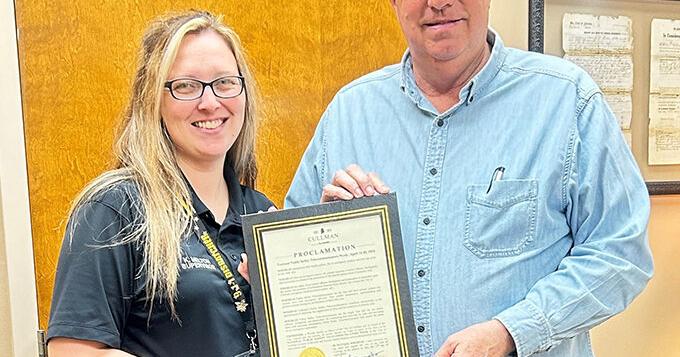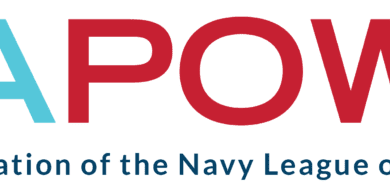Telecommunications week recognized | News

On Friday, April 12, Cullman Mayor Woody Jacobs proclaimed the week of April 14-20, Public Safety Telecommunicators Week in the city of Cullman in conjunction with National Public Safety Telecommunicators Week, which is observed annually during the second week in April. Sponsored by the Association of Public-Safety Communications Officials International, the week honors the thousands of men and women who respond to emergency calls, dispatch emergency professionals and equipment and render life-saving assistance to the world’s citizens.
When emergencies occur in the city of Cullman, it is vital to the protection of life and the preservation of property that police officers, firefighters, or paramedics can respond promptly. Emergency responders depend upon the quality and accuracy of information relayed to them from the City’s 911 emergency dispatch center. Public safety telecommunicators also monitor the activities of emergency responders by radio, continually providing them information and ensuring their safety.
“Our 911 dispatchers work hard behind the scenes to make sure that our emergency responders get to emergencies quickly and know what to expect once they get there,” Jacobs said. “They are the link between the public and emergency services and they do a wonderful job dealing with very difficult and stressful situations.”
On hand to accept the proclamation was city of Cullman public safety telecommunicator Kayla Mize. Mize is in her ninth year as a 911 dispatcher for the city and informed Jacobs that April is also National 9-1-1 Education Month.
The goal of National 9-1-1 Education Month is to educate the public on the appropriate and optimal uses of 9-1-1. Thousands of 9-1-1 calls are made every year by children properly trained on the use of 9-1-1, resulting in lives saved. But there is also widespread misuse of the 9-1-1 system, including prank and non-emergency calls, which can result in costly and inefficient use of 9-1-1 and emergency response resources.
When reporting emergencies, telecommunicators rely on callers to:
Know their location: Wireless calls to 9-1-1 provide location information, but 9-1-1 call-takers may need more specific information. Callers should be prepared to provide detailed location information so that help can get to the scene as quickly as possible.
Stay calm and don’t hang up: Until instructed to do otherwise, callers should stay on the line to provide any necessary information or assistance. Even if 9-1-1 is called accidentally, don’t hang up – just inform the call-taker that you dialed accidentally and that there is no emergency.
“I’d like to encourage our citizens to thank a 911 dispatcher for the important work that they do,” Jacobs said. “I also encourage everyone to make sure you and your family members are prepared to quickly and accurately make a 9-1-1 call should an emergency arise, because in an emergency, seconds matter.”
To learn more about National Public Safety Telecommunicators Week, visit npstw.org.
To learn more about National 9-1-1 Education Month, visit know911.org.



